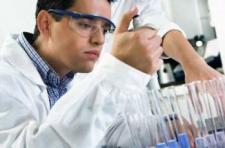Aggregated News

More than 200 phase 2 and 3 gene therapy trials are currently underway, which could translate into up to 40 new products’ being approved for clinical use in the next decade, and the potential eligibility of 1.09 million patients for this therapeutic modality in the next 15 years. The availability of more gene therapy products will bring profound changes to the treatment landscape of many rare genetic diseases, which will offer for the first time potentially curative options for patients. Healthcare systems worldwide have to start preparing now to cope with the challenge of ensuring that all patients, not just a select few with financial means and privileged access to technology, can benefit from these innovative therapies.
Cost is at the center of the gene therapy accessibility problem. In many countries, drug prices are regulated and subject to existing laws; however, for gene therapies, pricing remains largely unregulated and is decided on a case-by-case basis, often concentrating on a single upfront payment. When determining the price, drug companies consider development costs, the specific characteristics of the disease and the...



